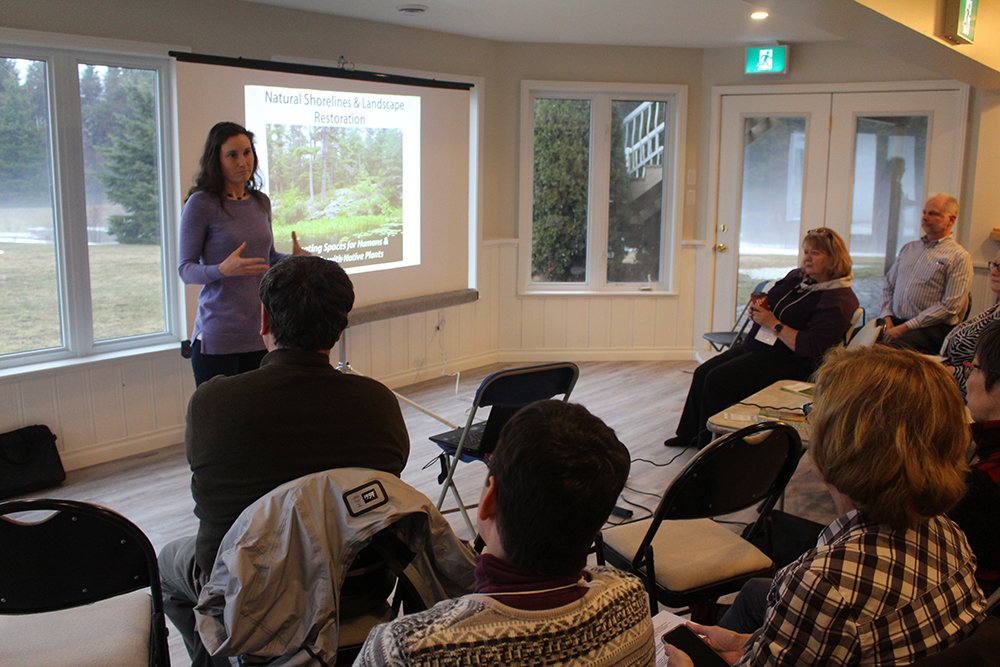Environmental consultant Julia Sutton told the Canadian Federation of University Women (CFUW) there is more potential in naturalized shorelines than they might think.
Sutton spoke to more than 20 people at the Haliburton Highlands CFUW meeting April 19 about natural shorelines and landscape restoration.
She emphasized the benefits of natural shorelines for the environment and said there are a lot of misconceptions about making them.
“A lot of people think native plants are boring. That they’re ugly. I’ve also heard a lot of ‘it’s too wild looking’ and they’re concerned about what their neighbours will think,” Sutton said. “I’m here to tell you, you can do anything you want with native plants.”
Sutton, who also runs an organic farm, said there are naturalized plants for anything people might need. She recommended careful consideration for how much land people use.
“Messy is best,” Sutton said. “We don’t like to hear the word at all, and I don’t mean you have to let your place go to shambles with weeds. But it’s that idea of tidying and maintaining where you need to and letting things go wild where you can. Pollinators really need messy.”
Sutton also suggested sourcing from native plant centres, not using chemicals like pesticides and making creature-friendly habitats such as insect hotels.
Sutton said natural shorelines are “the ribbon of life” and vital to the health of lakes and native species.
“The healthier your shoreline, the healthier your environment,” she said. “What you’re hoping is it will be more resilient to things like climate change.”
CFUW programmer Deborah Ouellette said she organized the presentation because it is an important topic to a lot of people in the area.
“Our organization realizes what’s going on and how important it is for future generations that we take care of our environment,” she said. “It’s one of the best presentations we’ve had this year.”
“Climate change will affect every aspect of our lives and it’s already starting,” Sutton concluded. “We need to think beyond our generation and we also need to think beyond our species. All of our wildlife will need help and we really need to give them help.”





